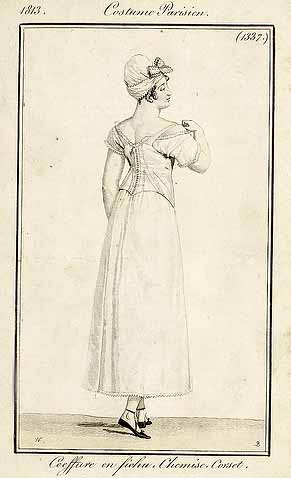
Recently my friend Melanie sent me a fascinating link to a fabric design contest at Spoonflower, a website where people can design their own custom fabrics. They have weekly design contests: this one is "inspired by the idea of what life would be like in a Jane Austen novel."
Some designs are more 'professional' than others. Some are based on the kinds of patterns that would have actually been used in dressmaking in the early 19th century: delicate dots, stripes and sprigged patterns. Some designs incorporate Regency-style characters or other visual tropes. Some are more tangentially 'romantic' and don't seem to use a Jane Austen-style visual language at all.
This design, in particular, struck me. It is odd that it includes the word "pride" without the matching word "prejudice". I love the phrase "Do stay for Tea". But I was even more struck by the description of the design. It reproduces a lot of the 'commonsensical' assumptions about the past that I see a lot, and that really annoy me.
Dress, speech and conduct was finely tuned and comformity was essential. Being held in tightly by societys expectations is reflected in the corsets women of a certain class had to wear. Women had to have long hair, long dresses, cover their heads when out in public and maintain a 'certain appearance'. […] I would have fitted in as I enjoy doing tapestry and I like being treated like a lady and I do love and appreciate culture and refinement.Because of the drapey Empire-line dresses, the Regency era actually had some of the shortest and least restrictive corsets in the 500-year history of the garment. Some women just wore quilted bodices with no boning. You'd wear a long-line corset only if you felt self-conscious about looking fat or wobbly in the thin, translucent muslins that were fashionable.
It is seriously weird how we somehow think that only the women of the past lived under crushing social expectations just because they wore undergarments that feel unfamiliarly tight and firm to us. The expectation to maintain a thin, fit, toned body is just as oppressive today, but it's less 'visible'. Maybe future people will shake their heads at the tyranny of fitness, symbolised by skimpy G-strings that mercilessly don't leave anywhere to hide.
1 comment:
It doesn't take much effort in removing yourself from a "todayism" mindset to be repulsed at the restrictiveness, uncomfortableness, oppressive (not to mention unhygenic) habit of wearing a skimpy thing with a bit of narrow string running up your bottom crack!
fxh
Post a Comment